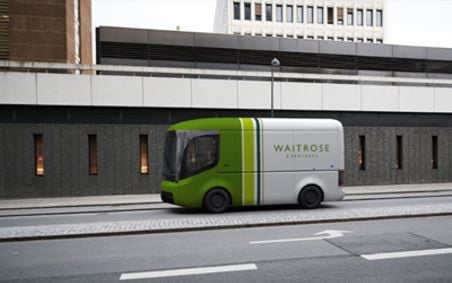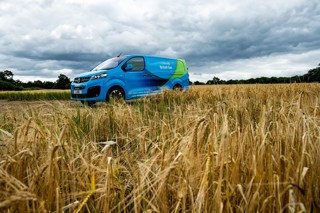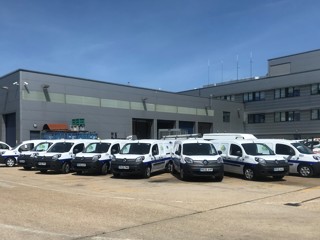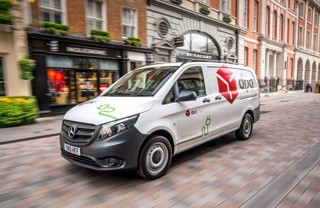Waitrose and John Lewis will significantly increase the use of electric vans for home deliveries as part of its ambition to end the use of fossil fuels across its fleet by 2030.
The John Lewis Partnership will use two new designs of vehicle for its Waitrose.com food deliveries and for smaller John Lewis deliveries, which are expected to make savings of more than 20,000 tonnes of CO2 every year.
It will being trials with the new vehicles early next year.
The retailer is also building a dedicated biomethane gas filling station to enable its largest heavy goods vehicles to use a low-carbon alternative to diesel. This will reduce CO2 emissions by 80%, with each truck saving over 100 tonnes of CO2 every year.
Justin Laney, partner and general manager of Central Transport at the John Lewis Partnership, said: “As our online services rapidly expand, we’re working hard to meet our goal of operating a zero fossil fuel in the next ten years.
“Our new electric vans are an ideal solution for home deliveries; the innovative design means they’re more efficient, but also respectful to the environment and the growing number of neighbourhoods in which we deliver.”
The retailer has worked with manufacturers and data scientists to source vehicles that are the most efficient and environmentally-responsible.

In addition to producing fewer pollutants, the new vans have greater capacity than their diesel counterparts. In some cases, this means replacing three diesel vans with two electric ones.
The vehicle can also be upgraded as technology advances, meaning the electric vans could have a useable life of up to 20 years or more.
Poppy Welch, head of Go Ultra Low, said: "Waitrose and John Lewis’ announcement is a fantastic example of the progress that many UK fleets are now making towards electric mobility.
"Switching to electric vehicles provides an immediate way for businesses to reduce their environmental footprint and improve local air quality across our communities.
"Electric fleets deliver significant financial benefits, too, enabling thousands of pounds worth of savings each year in fuel, tax, maintenance and other running costs compared to conventional petrol and diesel vehicles.
"Greener and environmental considerations continue to rise up the public and business agenda as the country looks to build back better, and we expect to see further fleets make the switch to electric and access these financial and environmental benefits."
With the Governent planning to end the sale of new petrol and diesel vans by 2035, many fleet operators are looking for suitable solutions. You can read more in the latest edition of Commercial Fleet.
Since accelerating its online expansion in light of Covid-19, Waitrose has added more than 100,000 customer order slots each week to its service (now more than 160,000 slots each week) and has committed at least 25% of Waitrose.com orders to vulnerable and elderly customers, including those on the government lists.
The business now delivers to nearly 90% of postcodes across the country via a network of shops and two (to be three at the end of this year) fulfilment centres in London.
The Waitrose Rapid service has also trebled its deliveries to 7,000 p/w, with at least 40% of the slots reserved for vulnerable customers. The service offers up to 25 products for delivery within two hours.






















Login to comment
Comments
No comments have been made yet.